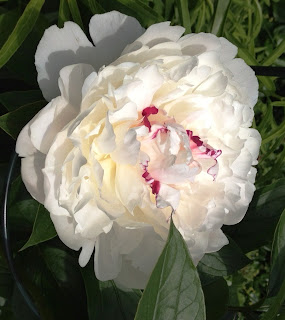(A reprise of a past blog)
A story that I heard a while back told of a worm bin and pound of worms as the hot item at a Yankee swap Christmas party.I believe that a worm bin and pound of worms make a great gift at any time of year. The more people we have vermicomposting the better.
Worm bins need not be expensive or complicated. I think a simple bin is really a lot easier to use (and certainly easier to build for the gift giver!). The solid bottom bin style will never leak, and if you do not rely on bottom drainage, you cannot drown your worms (which can happen on bottom draining styles if the drain hole becomes clogged).
If you're not ready to commit just yet, I offer gift certificates on my website (see http://www.wormmainea.com/Gifts.html)
In my mind, the perfect gift would be a book on vermicomposting (like Mary Appelhof's book Worms Eat My Garbage: How to Set Up and Maintain a Worm Composting System ), a pound of worms and a new bin (or a WormMainea gift certificate for these). If
you are already vermicomposting, you can provide the worms and make the
bin. If you're an experienced vermicomposter, you can provide vermiconsultation and skip the book.
), a pound of worms and a new bin (or a WormMainea gift certificate for these). If
you are already vermicomposting, you can provide the worms and make the
bin. If you're an experienced vermicomposter, you can provide vermiconsultation and skip the book.
WormMainea also has t-shirts for sale (variety of sizes for old and young). All are printed on organic cotton. Contact me if you are interested.
If you are looking for other gift ideas, I recently updated the Amazon lists of my recommended vermicomposting supplies, as well as favorite garden tools and books. Purchasing through my Amazon store costs you nothing and benefits maintenance of the WormMainea website.
You can view my Amazon store categories at:
WormMainea vermicomposting tools and supplies.
A story that I heard a while back told of a worm bin and pound of worms as the hot item at a Yankee swap Christmas party.I believe that a worm bin and pound of worms make a great gift at any time of year. The more people we have vermicomposting the better.
Worm bins need not be expensive or complicated. I think a simple bin is really a lot easier to use (and certainly easier to build for the gift giver!). The solid bottom bin style will never leak, and if you do not rely on bottom drainage, you cannot drown your worms (which can happen on bottom draining styles if the drain hole becomes clogged).
If you're not ready to commit just yet, I offer gift certificates on my website (see http://www.wormmainea.com/Gifts.html)
In my mind, the perfect gift would be a book on vermicomposting (like Mary Appelhof's book Worms Eat My Garbage: How to Set Up and Maintain a Worm Composting System
WormMainea also has t-shirts for sale (variety of sizes for old and young). All are printed on organic cotton. Contact me if you are interested.
If you are looking for other gift ideas, I recently updated the Amazon lists of my recommended vermicomposting supplies, as well as favorite garden tools and books. Purchasing through my Amazon store costs you nothing and benefits maintenance of the WormMainea website.
You can view my Amazon store categories at:
WormMainea vermicomposting tools and supplies.










